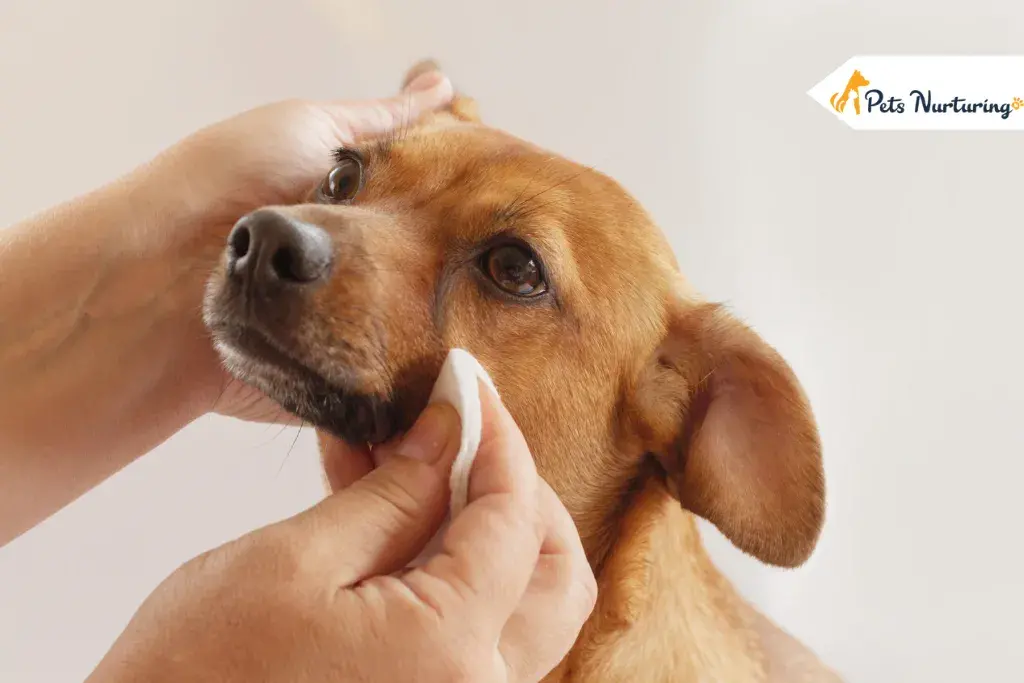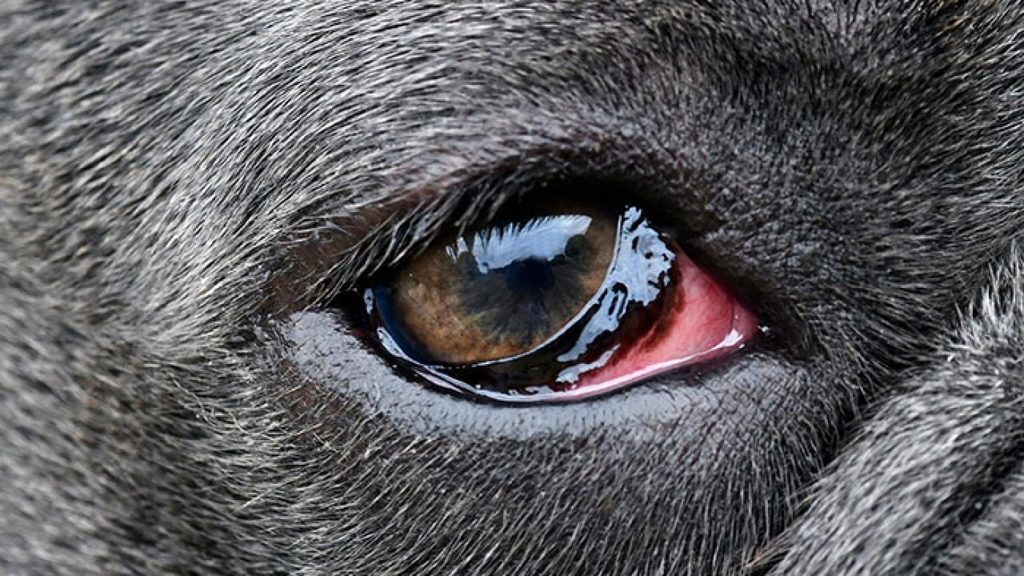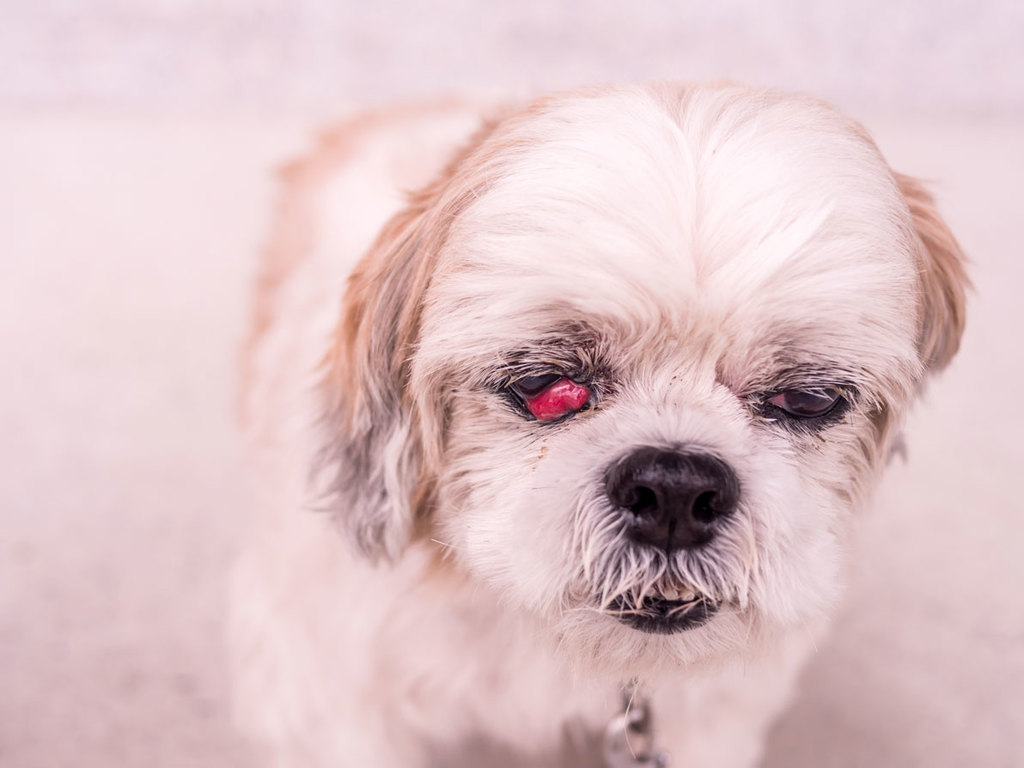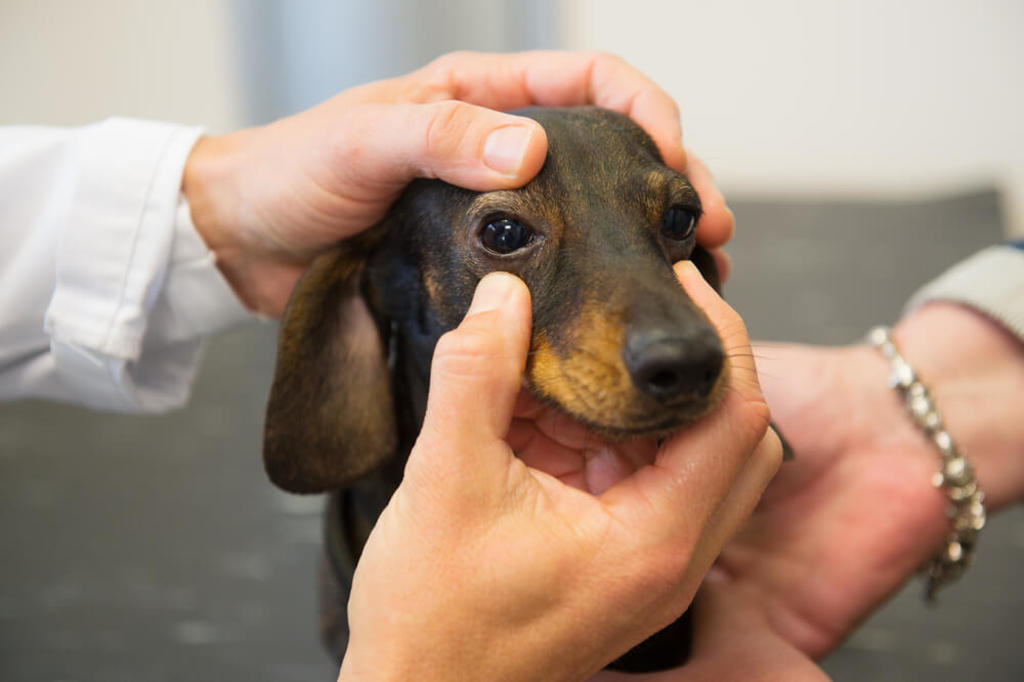
Does your dog keep scratching his eyes these days? Do you notice that his eyes are constantly red, and sometimes discharge comes out from their eyes? If your answer is yes, then there are chances that your furry friend is suffering from an eye infection. Yes, just like humans, they can too are prone to eye problems, and these days it is quite commonly seen in many dogs. To help you understand the eye infection in dogs, we are going to share all the information about it, such as the major signs of a dog eye infection, causes, treatment, and how you can prevent them.
What are the reasons behind all these infections? Actually, there is no specific one. But it is really challenging to determine whether it is just an allergy or some severe underlying eye issue. A dog with an eye infection has itchy, swollen, and red eyes, and sometimes a white or yellow discharge is released by the eyes.
5 Types of Eye Infections in Dog

Below is the list of five eye problems that are commonly seen in dogs:
1. Conjunctivitis
Commonly known as pink eye or red eye, Conjunctivitis is an inflammation of the conjunctiva, a thin mucous membrane (It is a membrane covering the inside of the eyelid of dogs and the front of the eye). Viruses or bacteria mainly cause it, and sometimes there may be clear or mucous discharge from the eye.
2. Inflammation of the Cornea
Another eye infection that is commonly seen in canines is the Keratitis. It refers to the cornea’s inflammation, and it is of two types: Noninfectious Keratitis and Infectious Keratitis. Minor injuries generally cause noninfectious Keratitis, but the infectious Keratitis can be caused by many factors such as infections, bacteria, parasites, or even a fungal infection.
This infection develops when your dog has inadvertently scratched the cornea. An increase in the disease can cause canine corneal ulcers that can break the eye globe.
3. Uveitis
Uveitis is an inflammation in the interior portion of your dog’s eye. This part consists of the iris, the ciliary body (a round structure located behind the iris), and the choroid (tissues behind the iris).
If your dog’s eye has redness, a cloudy appearance, blood on the inside of the eyes, there may be chances that he is suffering from this eye disease. The common cause of this infection may include other infectious diseases such as blastomycosis or leptospirosis, or other viral, bacterial, fungal, protozoal, and rickettsial causes. If not treated immediately, the condition can lead to blindness.
4. Keratoconjunctivitis Sicca (Dry Eye)
This is a condition in which there is insufficient production of tears in your dog’s eyes. This usually happens when your dog is not able to produce enough tears to smooth their eyes, and that is why the eyes become very dry, and this results in corneal damage. This also develops the risk of ulcers (sores) on the eye, requiring long-term treatment.
5. Abnormalities in the Eyelids and Tear Glands
There are many reasons why your dog may suffer abnormalities in his eyes. Some of them may be due to genetic factors, race, or underlying dog health conditions/diseases and related issues.
Symptoms of Dog Eye Infections

So How to know that your canine pal is suffering from eye disease? Below are some common signs and symptoms by which you can easily identify the infection:
- Eye redness
- Swelling of eyelids
- Watery or thick, smelly discharge
- Excessive tearing
- Visible Squinting
- Blinking
- Holding eye closed
- Light sensitivity
- Pawing at the eye
- Ocular tenderness
- Thick green or yellow secretion around the eye
Redness, swelling, or inflammation in the eyes are minor symptoms, but if your canine has allergies, then it is hard to determine the disease, which causes discomfort to your canine pal. In that case, your dog has to undergo a complete ophthalmologic exam.
Causes of Dog Eye Infections

Just like us, several factors may be responsible for causing your dog’s eye infection. Let’s find out the reasons and possible causes of your canine eye infection:
- Allergies
- Viruses, such as distemper, herpes, hepatitis, canine influenza
- Bacterial infections, such as canine brucellosis, leptospirosis, and tick-borne diseases including Lyme disease and canine ehrlichiosis
- Fungus
- Foreign objects/materials such as dirt, grass seed, or pet’s own hair
- Trauma
- Parasites
- Irritants, like smoke or shampoo
- Injuries or trauma to the eye or surrounding areas
- Irritants (such as debris, smoke, chemicals, or other substances) in the eye
- Pink eye (Conjunctivitis)
- Scratches, abrasions, or a cut on the cornea
- Ulcer/keratitis or corneal infection
- Underlying health conditions
- Viruses (such as herpes, distemper, canine influenza, and hepatitis)
There are also other health conditions and problems that can provoke symptoms that look like an eye infection, such as:
- Glaucoma
- Poisoning
- Dry eye
- Breed/Genetics
- Tear duct problems (most commonly found Poodles and Cocker Spaniels)
- Tumors
- Vitamin deficiencies
- Eyelid abnormalities, such as the cherry eye (a condition where the dog’s third eyelid protrudes) and entropion (when the eyelid rolls in and irritates the surface of the eyeball)
After knowing the symptoms and the reason behind this, you should immediately start the treatment (if the infection is minor). But your beloved pet is still feeling unhealthy, contact your vet promptly to schedule an examination.
How to Prevent Dog Eye Infections

After reading all these infections and diseases, now you might have been thinking about how you can prevent it and keep your beloved pet safe? As dogs are quite playful and energetic all the time, so preventing eye infections can be difficult. But there are a few steps by that you can take to prevent eye infections in your dog:
- Try to avoid trauma to your dog’s eye.
- Close the window whenever you are driving. This will stop the contact of any type of foreign material to the eyes such as dust, seeds, and other substances that can fly into the eye of your dog and cause irritation.
- Regularly trim the hair around the eye so that it won’t irritate the eyeball.
- Keep your dog’s face as clean as possible.
- Protect the eyes with goggles designed for dogs; it will protect the eyes from UV light, dust, and plant fibers.
Final Verdict
Dogs can get eye infections from viruses or bacteria, and some of these infections can damage your dog’s eyes and can lead to blindness. Eye problems in dogs are very treatable, so don’t get worried if your furry friend has an infection. Some infections can be treated at home, but if your dog is uncomfortable and feeling unhealthy, you should immediately consult your vet.
“Dogs are not our whole life, but they make our lives whole.”
For additional insights:











